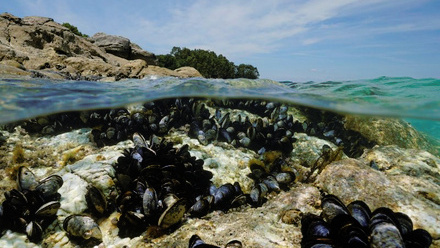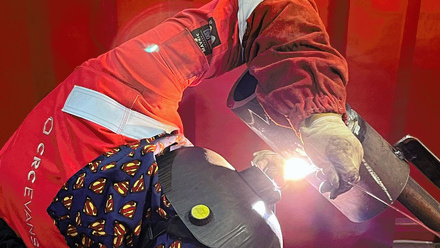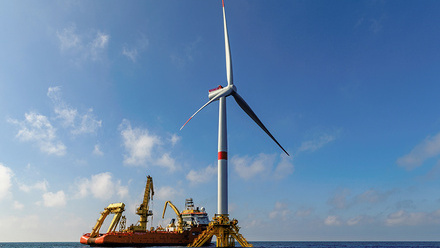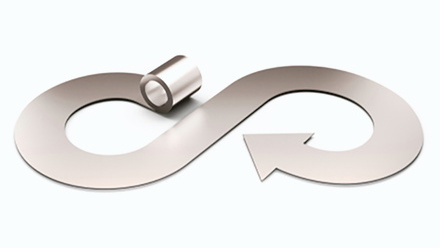Italy’s largest bank examines critical raw materials
Italy’s largest bank, Intesa Sanpaolo, launched its critical raw materials (CRM) report at the Italian Embassy in London on 16 September.
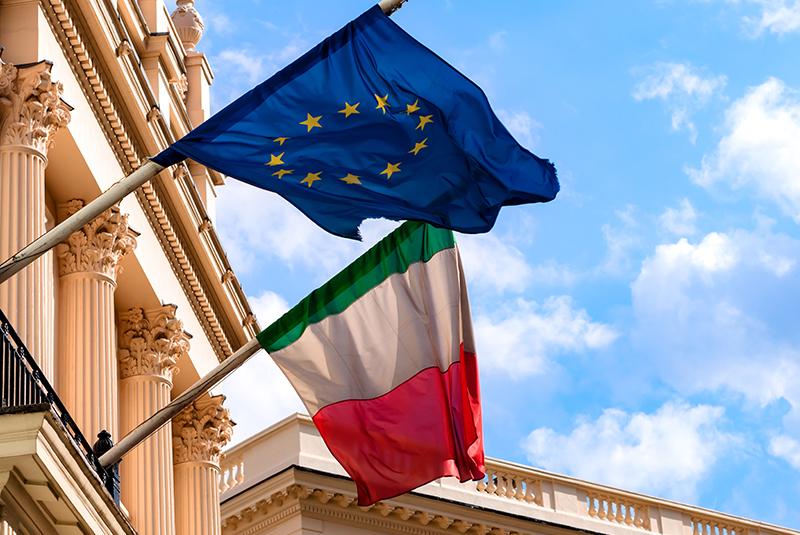
The report’s objective is to raise awareness and contribute to the debate around CRMs in Europe.
Luigi Ruggerone, Senior Director of Business and Innovation Research at Intesa Sanpaolo, speaking at the launch said, 'CRMs are of paramount critical importance, while supply is not homogenous across the Earth'.
He drew the audience’s attention to the 'huge dependence of some technologies upon very few raw materials. What economists call concentration risk'.
Speaking at the event, Alessandro Belluzzo, President of the Italian Chamber of Commerce and Industry for the UK, noted that 'the EU is between 75% and 100% reliant on imports for most metals.
'Mitigating the risks associated with CRM supply requires strength and resilience. A challenge in a challenge, but also an opportunity,' he highlighted.
The EU Critical Raw Materials Act aims to ensure at least 10% of CRMs consumed in the EU are extracted in Europe by 2030 – that figure is 3% at present.
The Act also wants 40% of CRMs used annually in the EU to be processed in Europe, and for 25% of annual CRM consumption to be recycled.
Achieving this is no small feat. The EU’s 2023 list of critical raw materials comprises 34 materials that are considered critical due to their significance in various sectors.
The UK, by contrast, identifies 18 critical minerals. The EU’s list comprises 31 individual materials and three materials groups. While copper and nickel do not meet the EU’s criteria, they are considered strategic raw materials, and important for the twin green and digital transition and defence and aerospace objectives.
The Industry trends report: Critical raw materials from Intesa Sanpaolo explains how CRM supply is dependent on a nation or country bloc’s unique position.
There is a helpful overview in the report of the 34 CRMs listed by the European Commission. For example, Australia produces 46% of the world’s lithium, while Chile provides 79% of EU’s supply. Meanwhile, China produces 85% of global light rare-earth elements (REEs), and there are no EU-sourcing countries.
The report states, 'Geographically, the EU is highly dependent on CRM imports from China (for several CRMs, in particular REEs), Russia, Turkey (borate) and the Democratic Republic of Congo (DRC, cobalt).'
It remarks that the EU currently imports all permanent magnets for wind turbines, mostly from China.
The supply of CRMs is also often more concentrated than fossil fuels, adds the report, while the concentration of natural reserves is generally smaller than actual production. 'Dependencies on CRM imports exist at diverse stages of the supply chain…', it notes.
China has stepped up efforts to capture the entire CRM value chain, it flags, largely fostered by long-term industrial policies. And where it has lacked domestic supply, it has invested in mining projects, such as cobalt in the DRC, Papua New Guinea and Zambia.
The report also discusses how more than 50% of copper and lithium reserves are located at sites with high-water-stress levels. 'Extraction can have very negative environmental effects,' commented Ruggerone.
He noted the many supplier risks and the importance of discussing and addressing them, commenting that, 'diversification is only a partial solution'.
In Italy, some mines have been reopened, Ruggerone pointed out. However, 'the – generally negative – image of mining in Europe is a further difficulty for the launch of mining projects intended to increase domestic supply', cautions the report.
Ruggerone declared that, “We strongly believe that the circular economy is going to be the new paradigm, and we have to abandon the linear economy paradigm.” However, recycling is not here yet, due to the recent nature of electric cars and their batteries.
He noted that the CRM goals require time and investment, but echoed the earlier comments, saying that 'the import dependence of the EU is staggering'.
The report concludes, 'Diversifying CRM primary sourcing, and thus lowering dependence on individual countries, is key to securing their supply, and could involve the promotion of ‘reshoring’', as well as ‘friend-shoring’ – supply from like-minded countries, and ‘near-shoring’ – bringing supply closer.
It also recommends an EU framework for risk analysis on CRM shortages. Acknowledging recent proposals of EU stockpiling for 60 days, Intesa Sanpaolo values a possible stockpile at €26bln.
Urban mining is also flagged as an untapped resource, with 'one million mobile phones containing 24kg of gold, 16,000kg of copper, 350kg of silver and 14kg of palladium'. The report warns that recycling alone will not address the issue, and a series of measures will be needed to solve the current supply problem.




